Kai Byoui Ramune really doesn’t miss a trick.
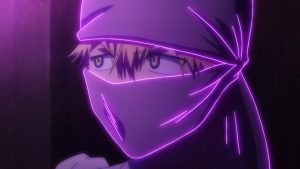 One thing that keeps striking me about this series is how elegantly the pieces fit together. It’s only 12 episodes (and if the manga really does end this time, it will only be 5 volumes) but there’s a tremendous amount of depth to it. All the little details aren’t just coincidence, or effect – they mean something. Stuff that might have seemed trivial when it happened turns out to be important later in the story, and each one of the subplots is a puzzle pice which is necessary to form the full picture. That’s just damn fine writing, plain and simple.
One thing that keeps striking me about this series is how elegantly the pieces fit together. It’s only 12 episodes (and if the manga really does end this time, it will only be 5 volumes) but there’s a tremendous amount of depth to it. All the little details aren’t just coincidence, or effect – they mean something. Stuff that might have seemed trivial when it happened turns out to be important later in the story, and each one of the subplots is a puzzle pice which is necessary to form the full picture. That’s just damn fine writing, plain and simple.
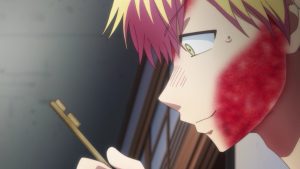 I took a ton of notes in watching this episode, which has been the case with most of them lately, but one could also distill this down to some very simple themes. Trust – trust yourself, first and foremost. Belief – in others, and the importance of having others believe in you. Truth – acknowledging it rather than running away from it. And compassion, which is what brings Ramune-sensei and Kuro-kun together. And it would have been wrong if it had been anything else that did. It defines Sensei, it’s who he is. But it’s clear that his concern for Kuro extends beyond merely his universal empathy. He understands what the boy is going through in a very personal way.
I took a ton of notes in watching this episode, which has been the case with most of them lately, but one could also distill this down to some very simple themes. Trust – trust yourself, first and foremost. Belief – in others, and the importance of having others believe in you. Truth – acknowledging it rather than running away from it. And compassion, which is what brings Ramune-sensei and Kuro-kun together. And it would have been wrong if it had been anything else that did. It defines Sensei, it’s who he is. But it’s clear that his concern for Kuro extends beyond merely his universal empathy. He understands what the boy is going through in a very personal way.
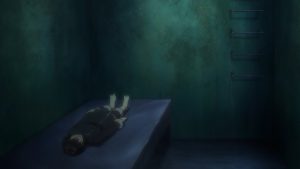 Sensei has a recurring pattern – he harms himself in order to help others. So it is with the furoshiki he dons in order to sneak into the Manumerous Group headquarters and rescue Kuro. Those injuries looked pretty nasty, and they didn’t heal right away either. But it would simply never have occurred to him not to do what he did, because he’s constitutionally incapable of leaving a suffering child unaided. It’s not surprising that Tooru resisted at first – Sensei is an odd fellow to be sure, and as smart as Kuro is, brainwashing can be very effective. But Sensei doesn’t take no for an answer (thank goodness).
Sensei has a recurring pattern – he harms himself in order to help others. So it is with the furoshiki he dons in order to sneak into the Manumerous Group headquarters and rescue Kuro. Those injuries looked pretty nasty, and they didn’t heal right away either. But it would simply never have occurred to him not to do what he did, because he’s constitutionally incapable of leaving a suffering child unaided. It’s not surprising that Tooru resisted at first – Sensei is an odd fellow to be sure, and as smart as Kuro is, brainwashing can be very effective. But Sensei doesn’t take no for an answer (thank goodness).
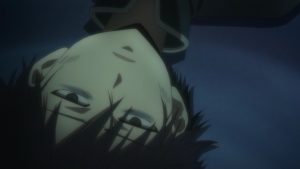 There’s another element to why Kuro comes around, I think, and it’s because Sensei doesn’t lie to him in order to protect his feelings. Kuro is living a lie, so truth has a profoundly powerful appeal to him. And when Ramune-sensei confronts him with the truth the boy knows in his gut – his tortured, wounded gut – that he isn’t lying. Sensei’s simple appeal is a powerful one: “Is it so wrong for me to want to help you? If you don’t know what to believe, believe in me.” This is the essence of who Sensei is – at heart a very straightforward person, as eccentric as he is.
There’s another element to why Kuro comes around, I think, and it’s because Sensei doesn’t lie to him in order to protect his feelings. Kuro is living a lie, so truth has a profoundly powerful appeal to him. And when Ramune-sensei confronts him with the truth the boy knows in his gut – his tortured, wounded gut – that he isn’t lying. Sensei’s simple appeal is a powerful one: “Is it so wrong for me to want to help you? If you don’t know what to believe, believe in me.” This is the essence of who Sensei is – at heart a very straightforward person, as eccentric as he is.
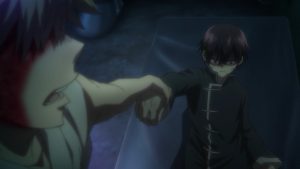 What I especially love about the sequence which follows is that the whole food fetishism that’s pervaded Kai Byoui Ramune is shown to have been about something all along. Food is an important part of life, and an important part of Sensei and Tooru’s relationship. It’s the carrot he uses to lure the lad back to the light – even as he treats the ill Kuro in careful and medically sound fashion, he’s showing him what awaits him if he comes to accept who he is and move forward. Food is life, really – it’s certainly no coincidence that it’s been at the heart of most of these mysterious diseases – but it’s also symbolic of the lifeline Sensei threw to Kuro when he was drowning in lies.
What I especially love about the sequence which follows is that the whole food fetishism that’s pervaded Kai Byoui Ramune is shown to have been about something all along. Food is an important part of life, and an important part of Sensei and Tooru’s relationship. It’s the carrot he uses to lure the lad back to the light – even as he treats the ill Kuro in careful and medically sound fashion, he’s showing him what awaits him if he comes to accept who he is and move forward. Food is life, really – it’s certainly no coincidence that it’s been at the heart of most of these mysterious diseases – but it’s also symbolic of the lifeline Sensei threw to Kuro when he was drowning in lies.
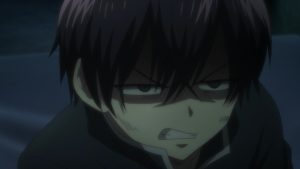 The situation with Tooru’s family is not brushed aside easily – it’s actually at the root of the illness, where the Manumerous villains are just a symptom. What it comes down to is this – Kuro has every right to demand that his family accept him as he is, and it’s up to Sensei to convince him of that. Kurage is at the heart of the problem. He loves his brother but in a possessive way, as Sensei points out. Kurage wants Kuro where he can control him (not uncommon among older siblings) and he’s the clear ringleader in the family when it comes to dismissing Kuro’s true nature. His mother knows the truth, obviously – but she lacks the confidence to stand up for it.
The situation with Tooru’s family is not brushed aside easily – it’s actually at the root of the illness, where the Manumerous villains are just a symptom. What it comes down to is this – Kuro has every right to demand that his family accept him as he is, and it’s up to Sensei to convince him of that. Kurage is at the heart of the problem. He loves his brother but in a possessive way, as Sensei points out. Kurage wants Kuro where he can control him (not uncommon among older siblings) and he’s the clear ringleader in the family when it comes to dismissing Kuro’s true nature. His mother knows the truth, obviously – but she lacks the confidence to stand up for it.
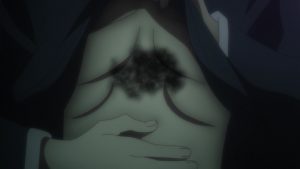 The Fox Lattice seems to be a pretty symbolic device (this series is loaded with symbolism). What heals broken relationships is the ability to see through someone else’s eyes – to understand why they suffer – and this is often at the heart of what Ramune-sensei has to do to help his patients. His fight here is not with Kurage or the Kuromori family, it’s with Kuro himself. Once he wins him over to the idea that he has a right to be accepted, the physical battle (including with the cult) is largely a formality. Not that the Kuromori clan isn’t formidable – a formidable opponent, but even more formidable if they’re in your corner.
The Fox Lattice seems to be a pretty symbolic device (this series is loaded with symbolism). What heals broken relationships is the ability to see through someone else’s eyes – to understand why they suffer – and this is often at the heart of what Ramune-sensei has to do to help his patients. His fight here is not with Kurage or the Kuromori family, it’s with Kuro himself. Once he wins him over to the idea that he has a right to be accepted, the physical battle (including with the cult) is largely a formality. Not that the Kuromori clan isn’t formidable – a formidable opponent, but even more formidable if they’re in your corner.
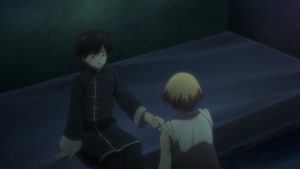 So this all comes back to food, in the end, and so much makes sense now (elegantly constructed, as ever). Kuro’s meals with Sensei are treatment, though I suspect that by now, a year later, he’s “cured”. Kuro is an honorable boy and his desire to pay Sensei back is no doubt genuine, but it’s obvious that what’s keeping these two together now is something much deeper than duty or treatment. Returning to the aquarium now, at relative peace with himself and with the person who made that possible, is a lovely way to close Kuro’s origin story. Everything in Kai Byoui Ramune has a structure, a beginning, middle, and end. And nothing happens by coincidence.
So this all comes back to food, in the end, and so much makes sense now (elegantly constructed, as ever). Kuro’s meals with Sensei are treatment, though I suspect that by now, a year later, he’s “cured”. Kuro is an honorable boy and his desire to pay Sensei back is no doubt genuine, but it’s obvious that what’s keeping these two together now is something much deeper than duty or treatment. Returning to the aquarium now, at relative peace with himself and with the person who made that possible, is a lovely way to close Kuro’s origin story. Everything in Kai Byoui Ramune has a structure, a beginning, middle, and end. And nothing happens by coincidence.


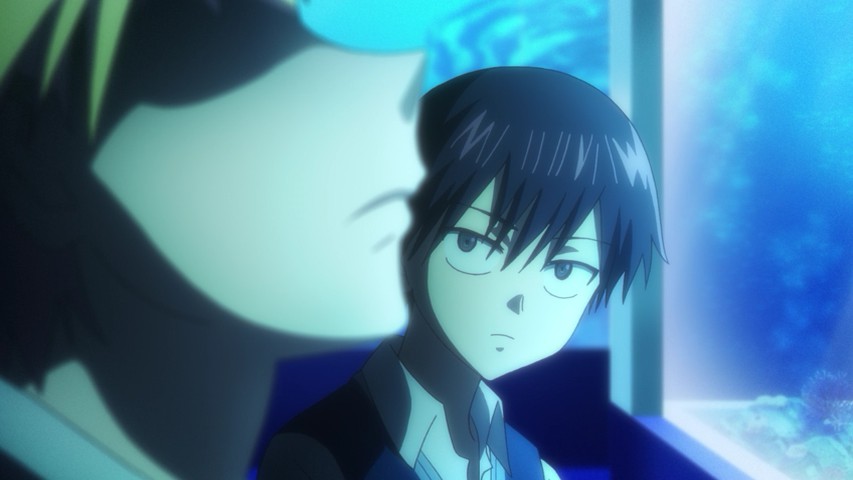
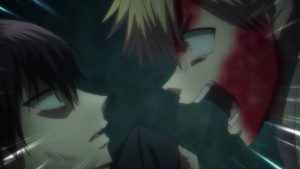
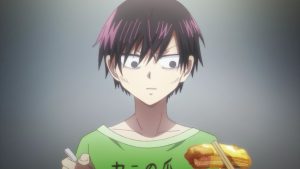
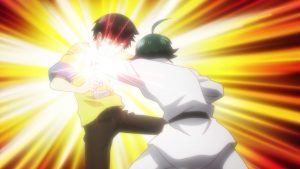
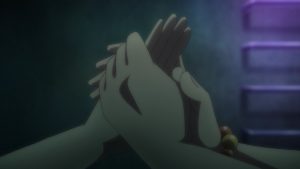
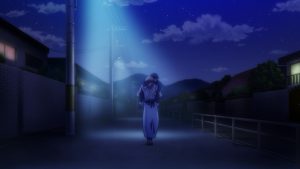
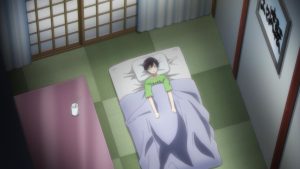
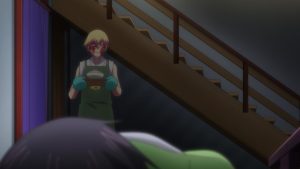
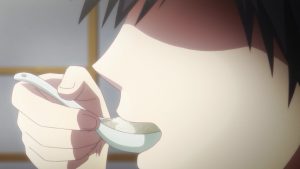
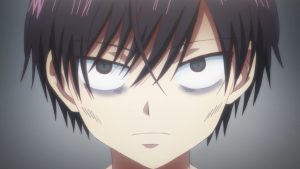
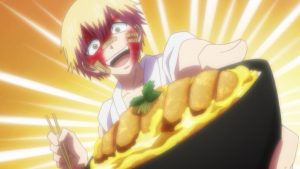
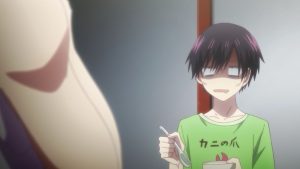
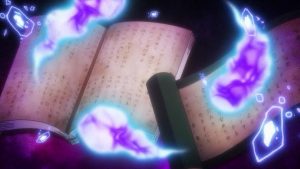
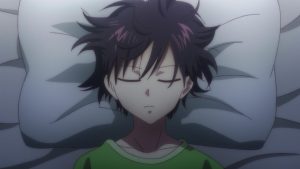
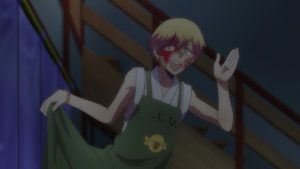
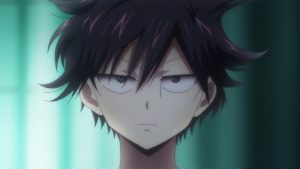
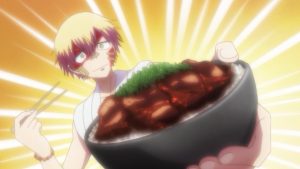
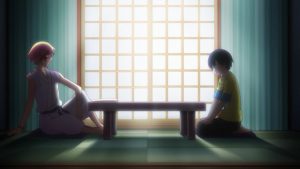
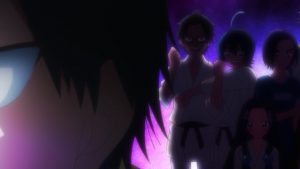
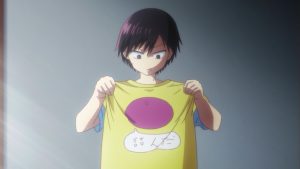
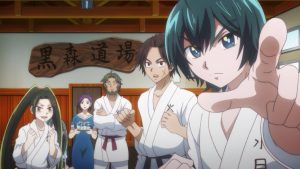
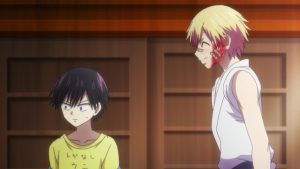
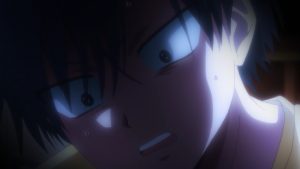
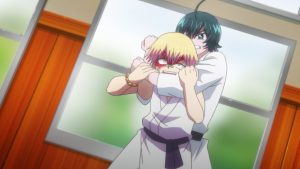
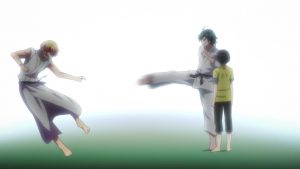
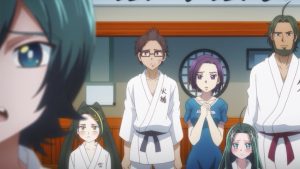
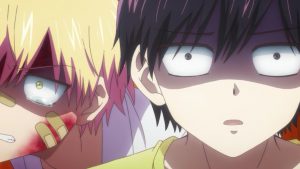
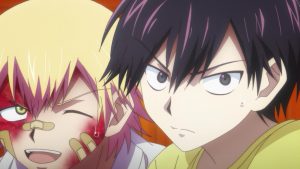
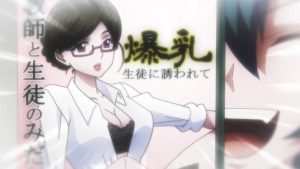
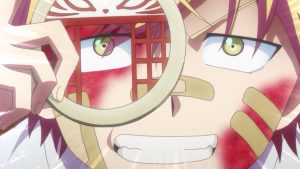
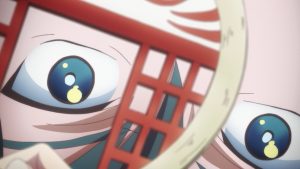
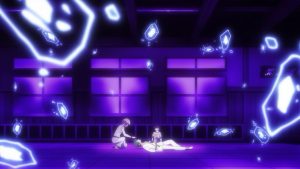
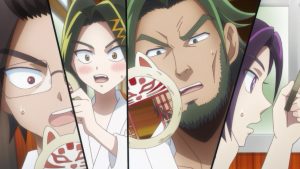
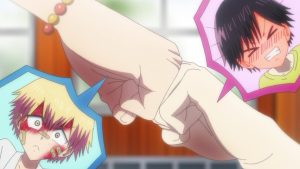
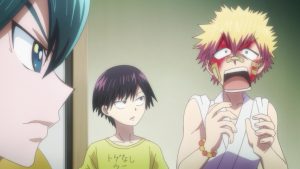
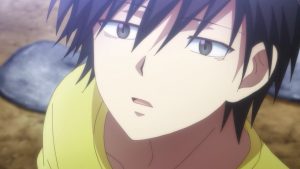
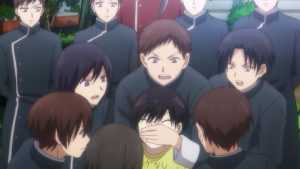
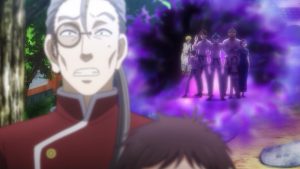
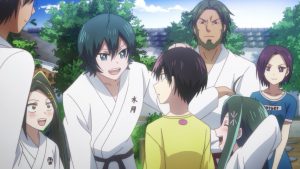
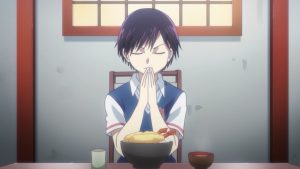
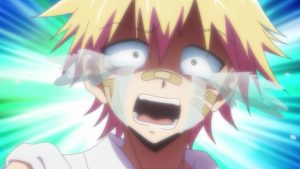
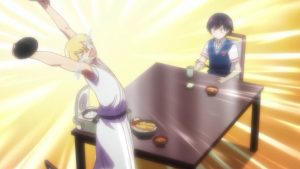
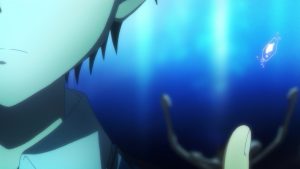
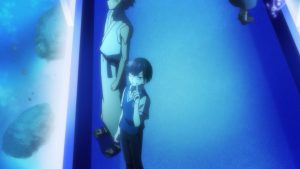
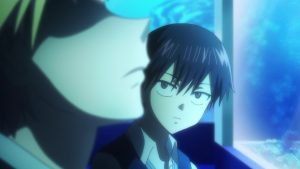
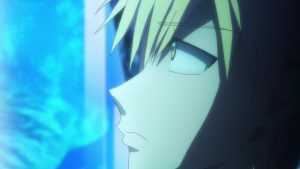


A.Sade
March 21, 2021 at 5:30 pmNow all that’s left is the last episode and Ramune himself. The series title drop in the preview has me both hyped and a little melancholic to see the end of this hidden gem. Would like to find the manga sometime if I get the chance.
animealex
March 21, 2021 at 5:37 pmVery nice write up for another very good episode. I just want to add something: The humor even in heavy episodes is also always good. Case in point: Ramune sounding like a kidnapper and embarrassing the older brother during a tense situation. If you can’t beat them, confuse them!
Guardian Enzo
March 21, 2021 at 5:45 pmYes,, it is good. The jokes in this series nearly always hit.